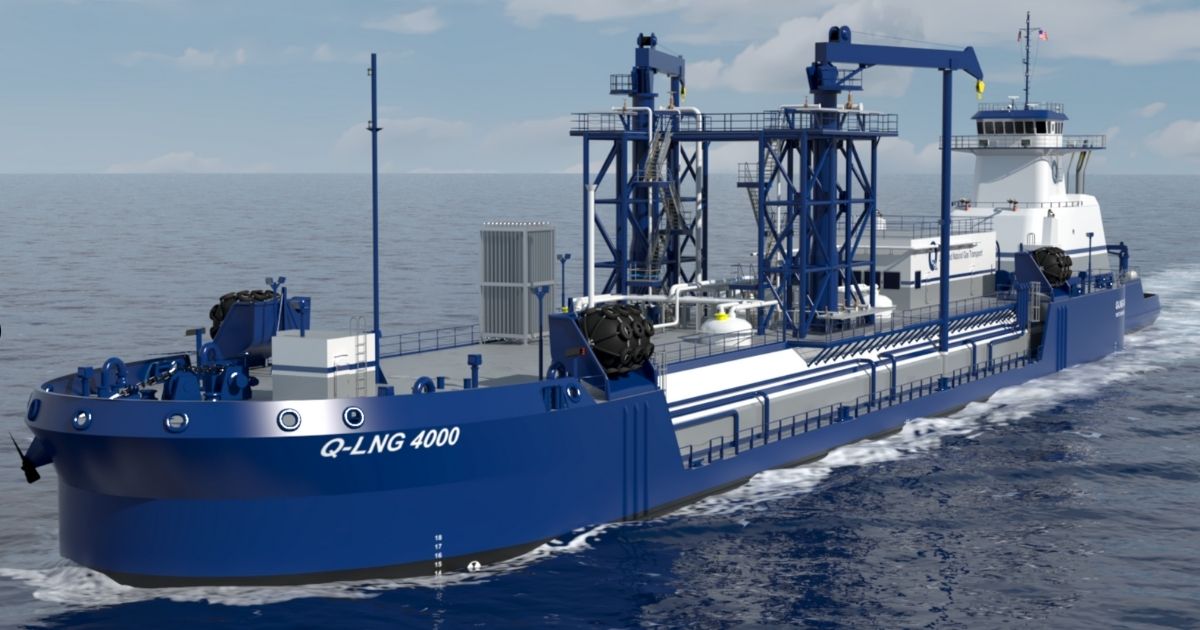First U.S. Offshore ATB Q-LNG 4000 Ready for Operations

LNG Transport and Shell Trading (US) Company have announced that the first offshore liquified natural gas (“LNG”) bunkering articulated tug and barge (“ATB”) in the United States, the Q-LNG 4000 is now ready for operations.
Designed to provide ship-to-ship transfers of LNG to vessels utilizing LNG and ship-to-shore transfers to small scale marine distribution infrastructure, the ATB is an integral part of the LNG infrastructure along the southeast U.S. coast. This critical milestone in the development of marine LNG infrastructure is an important step in the safe, reliable transportation and delivery of LNG in North America.
“Shell has an ambition to be a net-zero emissions energy business by 2050 or sooner, in step with society, and we are working hard to deliver the kind of solutions our customers need now to help them decarbonize,” said Karrie Trauth, General Manager for Shipping and Maritime, Americas. “LNG is an important part of the solution today, and I’m proud that this vessel will effectively double the number of LNG bunker vessels in the U.S. and making it possible for us to continue to help others accelerate their own transition.” The barge complements Shell’s existing global network of 6 LNG bunker vessels to meet the growing global demand for cleaner maritime fuels.
Shane Guidry, CEO of Q-LNG commented, “I’m pleased to have taken delivery and to begin our long term service contract with Shell Trading. All of my companies, including Q-LNG, are focused on, and will continue to do our part to design, build and operate vessels that will assist with the quest to decarbonize. We look forward to delivering extremely safe and reliable service, as we have done for Shell all of my career. I absolutely want to thank all of those with Shell who were very helpful throughout the build process and to especially thank everyone on my team, whom all remained focused and committed, with boots on the ground 24/7 to get this vessel across the finish line.”
Compared to heavy fuel oil, LNG reduces greenhouse gas emissions by up to 21% for 2-stroke engines and up to 15% for 4-stroke medium speed engines as well as significantly reducing pollution from nitrogen oxides and particulate matter compared to conventional marine fuels. This fuel type also meets IMO 2020 sulphur regulations.
Learn more at here.

